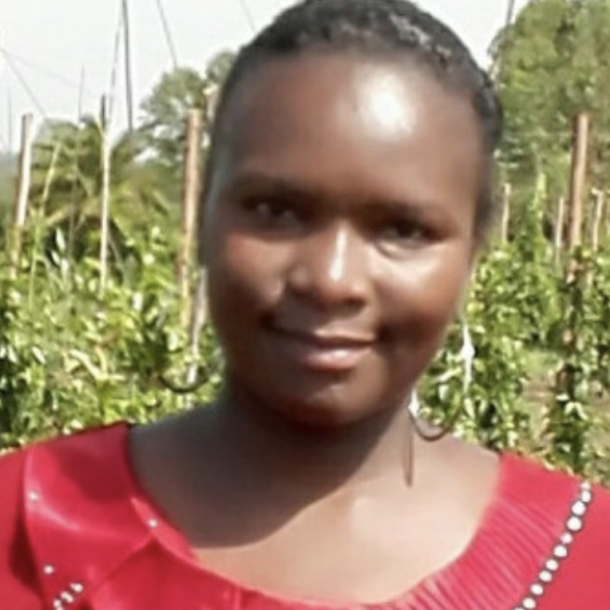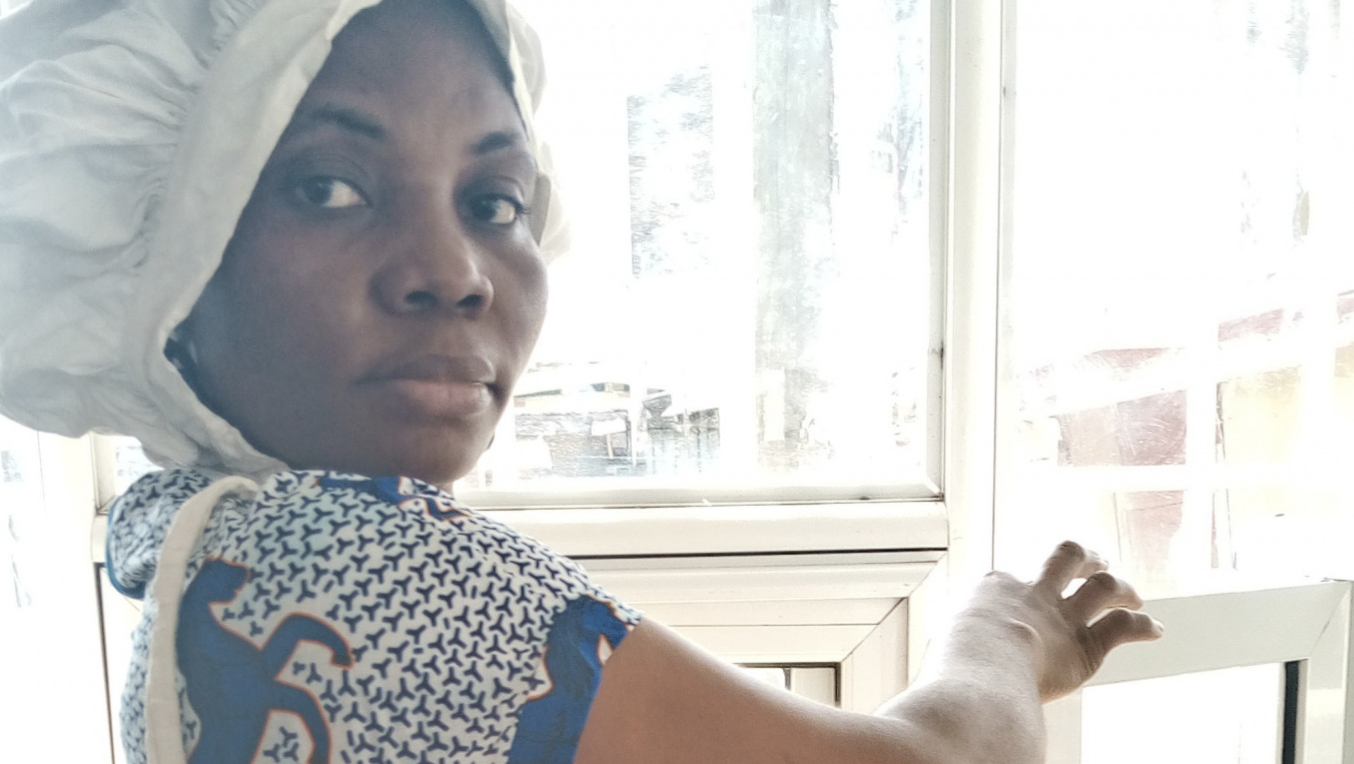
by Rebecca Wolfe
Miriam Marani is a woman of the land. Raised in a rural Kenyan community, she has long been friends with the soil and the plants. The oldest daughter of two school teachers, she made her way through high school and college and then into a clerical position at a community organization. This work, however, did not provide enough for her family and operated on a contract basis, with ever-possible termination looming overhead. Following her lifelong passion for farming, and her deep familiarity with the fruits, herbs, and vegetables of her rural Kenyan region, Miriam decided to start an agricultural business to supplement her family’s income.
Miriam specializes in horticulture, farming tomatoes, onions, capsicums, passion fruits, watermelons, and arrowroots. Supporting her two young children, she relies on her crops to provide for her family’s daily needs. “The crops I plant are marketable and in demand in all seasons,” she says of her strategic harvests. Her main challenges are pests and viruses that attack the crops, along with the perennial farmer’s challenge of unfavorable weather conditions.
Since starting her farm, Miriam has been able to pay her children’s school fees and medical bills, as well as provide food and clothing. Her profits have even enabled her to build a permanent, proper house for her family, giving her children a reliable place to come home to at night.
In the spring of 2016, Miriam set out to take on the dry season with a drip system, but found that her funds were insufficient to cover the initial investment. Knowing that this improvement in infrastructure would greatly benefit her agricultural endeavors, she set out to find another way to bring this improvement to her farm. Zidisha was that way. A March 2016 loan application for $150 was quickly funded, and Miriam was able to install drip lines in over an acre of her land, nourishing her plants even as the rain clouds dissipated. This increase in produce, particularly in the dry season during which there is less market saturation, provided her with a greater profit margin. This increase in profit allowed her to invest in seedlings for a new crop and increase infrastructure for her greenhouse plants.

In May of 2016 Miriam again applied for and received a loan of $150. She had planted passion fruit seedlings that February, and they were growing very quickly. While this rapid growth was a positive thing, it was not something that Miriam’s infrastructure was prepared for. Passion fruit, when left on the ground, is prone to infection. Miriam’s second loan enabled her to purchase trellises for her 500 passion fruit seedlings, supporting the plants and helping them to avoid infection and spoil. Posting a photo of her plants that June, Miriam thanked her lenders for their support and spoke of her excitement about the harvest set to come in August.
Before that harvest came, however, a small disaster struck Miriam’s farm — the plastic covering of her greenhouse was torn, rendering the space unlivable by those plants which required very specific environments. She hoped to use the space to grow capsicums, better known as bell peppers in the United States and many European countries. With a hopeful heart, Miriam came to Zidisha with a request for $460. “This is my torn greenhouse,” she said alongside a photograph of the damage. “I wish to repair it so that I can start using it… The proceeds will help me improve livelihood of my family by paying for their basic needs comfortably.” By the middle of the month, just a few days after the loan was posted, Miriam’s funds were in her account and the necessary polythene paper and drip lines were on their way. The Zidisha community had come together to support her in her journey. In August, Miriam’s harvests came. She was selling capsicums weekly, and her passion fruits were bright and healthy.

“I am thanking Zidisha lenders so much for their great help in my Agri business venture,” she said in a post at the beginning of November. “Through Zidisha I have been able to stand on my own two feet and improve my family’s livelihood.” Miriam’s crops are growing, as is her community. Her family now lives in a sturdy home, and her most recent loan of $766, funded on November 7th, will enable her to build a new greenhouse on her property. “I am so happy, excited, thankful and humbled for this honor,” she said when the funds came through. “I have no words to express this. I wish I could mention each one of you by names.”
With a greenhouse specifically dedicated to tomatoes, which sell hand in hand with capsicums in the local cuisine, Miriam will be able to pay her children’s school fees, as well as “provide them with nutritious food, cloth and shelter.” She also plans to use her proceeds to help young farmers in her area, teaching them all that she knows about agriculture so that they too might find the success that she has found. Miriam has been “nominated by an Agricultural Extension officer in [her] area to help mentor other upcoming farmers on Capscicum farming.” In addition to this, she is also a volunteer mentor with Zidisha, serving fifty other members through sharing her expertise and her friendship.

The impact of Miriam’s loans go beyond her own livelihood. They extend to her community, those she mentors, those who are able to have fresh produce at dinner because of her and her efforts. Like the plants that she so carefully cultivates, Miriam’s impact grows.
If you would like to see more communities thrive, head on over to our loans page and fund a loan for another inspiring entrepreneur.


